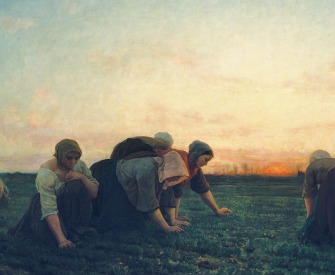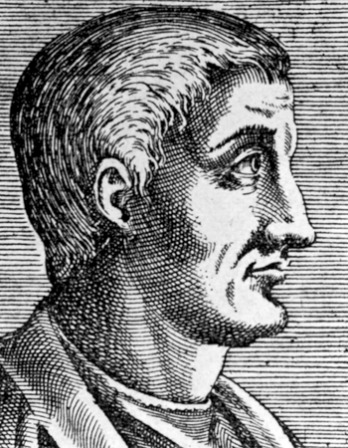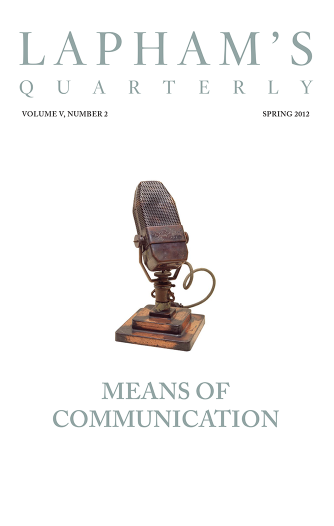Even so, after the hard work of man and ox to turn
earth over, nothing stops the goose bold to uproot wheat,
Eurasian cranes, and chicory with its bitter roots,
nor is heavy shade harmless. The Father himself hardly
willed that agriculture would be easy when he called forth
the field with his art, whetting human minds with worries,
not letting his kingdom slip into full-blown laziness.
Before Jove took power, no settlers broke the fields with their plows:
it was impious then to mark off the land and divide it
with boundaries; people sought land in common, and Earth herself
gave everything more freely when no one made demands.
It was Jove who put deadly venom in the hissing snake,
ordered the wolf to turn predator and the deep sea to surge,
shook all the honey from the leaves, extinguished fire,
and everywhere held back the wine that flowed fast in the streams
so that, using their brains, men might gradually hammer out
many skills, like searching for stalks of wheat by plowing,
and so that they might strike the spark held in veins of flint.
Then rivers first sensed boats of hollowed elder wood;
then the seaman counted and named the stars—Pleiades,
Hyades, the princess whom Jove turned into the bright Bear;
then they learned how to catch game in snares, how to use birdlime
and surround vast woodlands with deer dogs and bear dogs;
while one man flogs a wide stream with his cast net seeking
the bottom, another pulls his sodden draglines through the sea;
then came iron’s hardness and the grating blade of the saw
(for early men split wood along the grain with wedges);
then came the arts in many guises. Relentless work conquered
all difficulties—work and urgent need when times were hard.
© 2005 by Yale University Press. Used with permission of Yale University Press.
From the Georgics. Born to peasant parents near Mantua, Italy, in 70 bc, Virgil retained a sympathy for agricultural life, evident in the Eclogues and in this work, later described by Seneca as written “not to instruct farmers but to delight readers.” In 31 bc Octavian defeated Antony and Cleopatra at the Battle of Actium; about one year later, Virgil began his epic poem the Aeneid, left unfinished at his death in 19 bc.
Back to Issue





